Last-Minute NYC Holiday Gift Guide 🎁
We’ve created a holiday gift guide with presents for the intrepid New Yorker that should arrive just in time—


A hunt for remnants is on the top of our favorite activities at Untapped New York. Many of these hunts have turned into tours, like the Remnants of Penn Station, Remnants of the World’s Fairs, and the Remnants of Dutch New Amsterdam. In recent months, these in-person tours went virtual through our Untapped New York Insiders program. And in preparation for our event today at noon on the new book We Came Here to Shine set at the 1939 World’s Fair, our team went searching for some remnants we had not located before: what’s left of the lost Aquacade theater in Flushing Meadows-Corona Park.
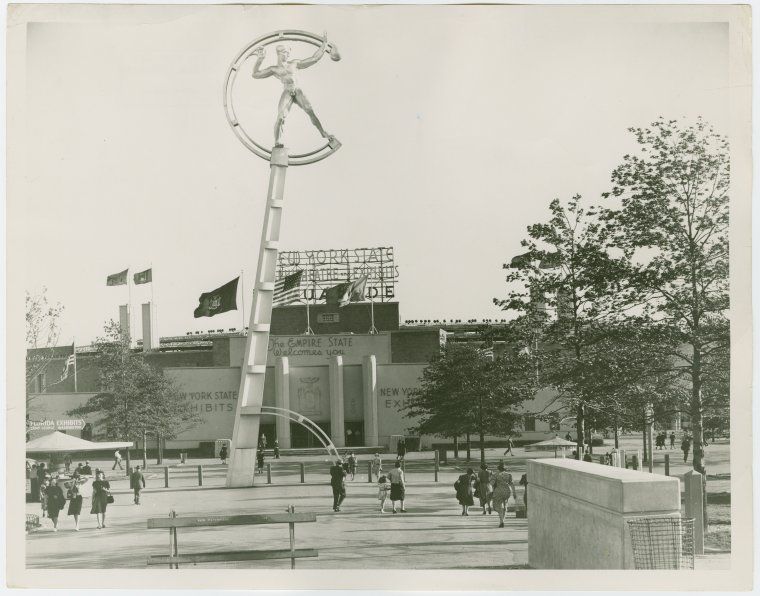
The Aquacade in 1939-40. Photo from New York Public Library.
The structure was officially known as the New York State Amphitheatre, although the 1939 guidebook calls it the Marine Amphitheatre. It was intended to be a permanent gift to New York City after the 1939 Fair. Billy Rose and his “Million Dollar” Aquacade were the main tenants there throughout the fair and were a huge draw. The guidebook describes it as “one of the most enchanting panoramas of all time” with swimming ballet dancers and Olympic diving champions. The star of the show was Eleanor Holm who was an Olympic Gold medalist. The Aquacade could sit 10,000 people and the “water-curtain” show was quite the engineering feat: it pumped 8,000 gallons of water a minute into a “man-made Niagara” that was 260 feet wide and 40 feet high. The guide describes that “the cascade curtain goes into action the minute the gates of the amphitheatre are opened, casting its misty veil over the stage.” The guidebook description ends with its own cascade of superlatives about the show and its performers.
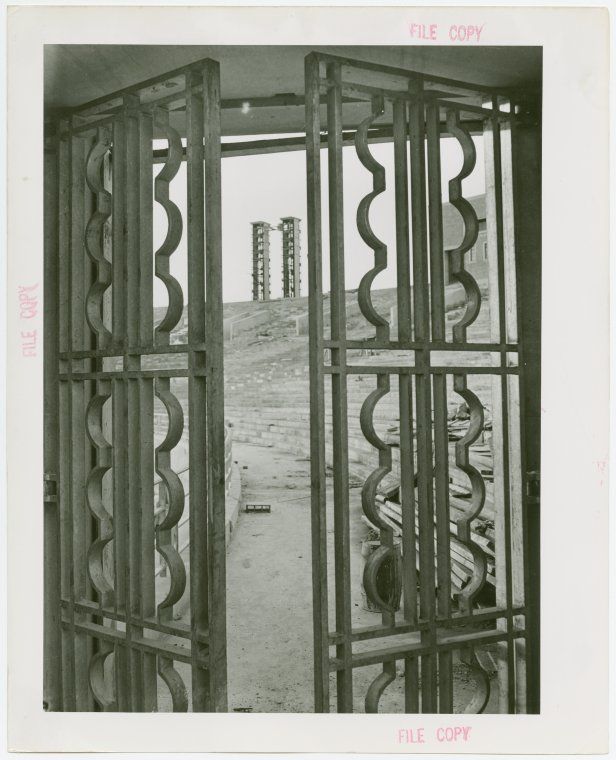
Doors to the Aquacade. Photo from New York Public Library.
The Aquacade was refurbished for the 1964-65 World’s Fair. The guidebook describes the new spectacle: a production by society band leader Meyer Davis and Leon Leonidoff from Radio City on a 75-foot diameter turntable, “one of the largest in the world,” a swimming pool in front of it, and moveable platforms that “shuttled” back and forth over the pool. On either side of the stage were acoustical shells for an orchestra and chorus. Tickets were from $1.00 to $3.35, the upper price point for special reserved seats.
After the 1964-65 World’s Fair, the Aquacade sat abandoned for many years. It was demolished in 1996 despite an attempt to save and repurpose it as a concert venue. It was said that the structure was filled with asbestos. Not all was lost however, as a few details remain hiding in plain sight in Flushing Meadows-Corona Park if you know where to look.
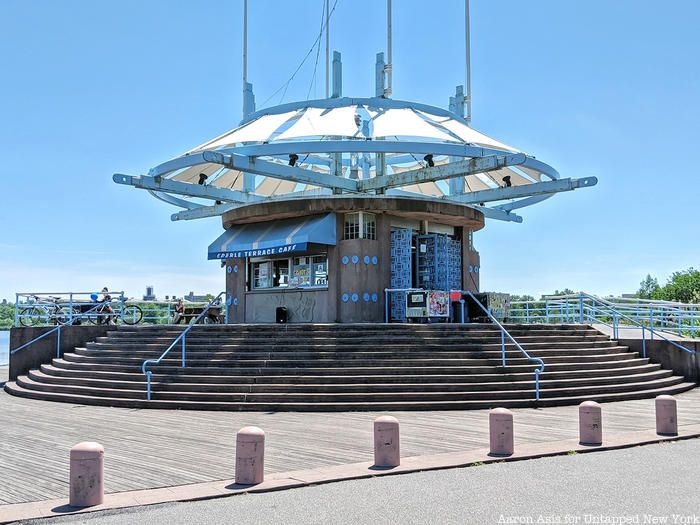
Besides its space age-look, the Ederle Terrace Cafe at Meadow Lake may seem like a pretty run-of-the-mill park concession stand. But it contains several remnants of the Aquacade: there are two bas-relief sculptures below the windows of the concession stand and the ornate gates of the amphitheatre are used as doors into the cafe. The cafe’s name is also a reference: New Yorker Gertrude Ederle is most well-known for being the first woman to swim the English channel, but she also was a performer in the 1939 Aquacade show. Nearby, there is also an Ederle Promenade, where the Aquacade once stood.
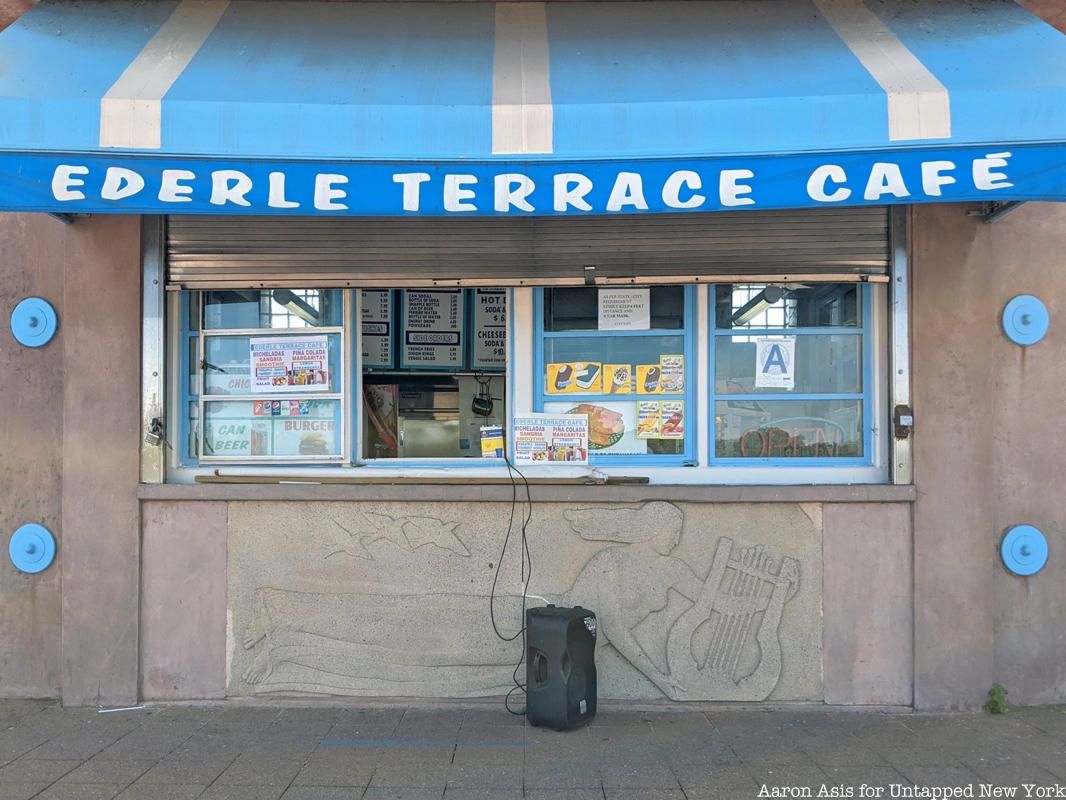
The addition of the bas-relief sculptures is pretty noticeable, with a color difference between the cafe walls (likely due to a repaint job at some point). The doors have been repainted a bright blue to fit the color scheme of the cafe.
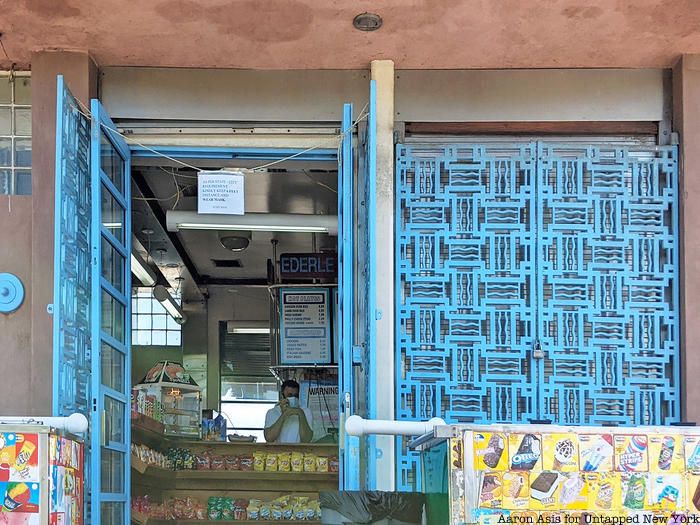
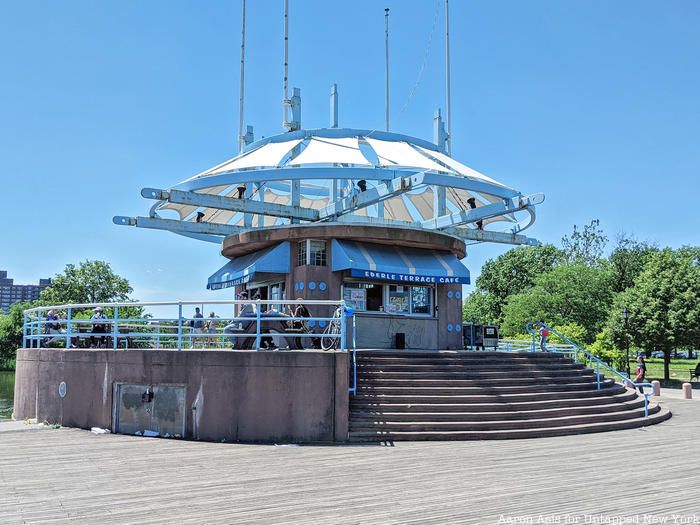
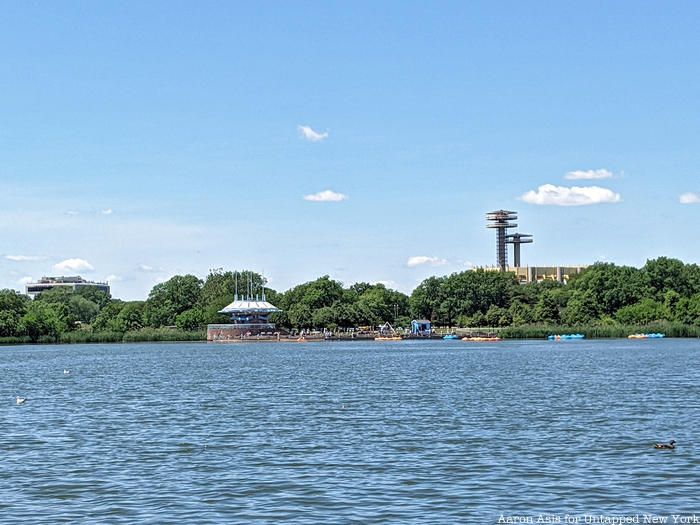
Join us at noon today for the virtual talk on the 1939 World’s Fair. Justin Rivers, Chief Experience Officer, will join the author Susie Orman Schnall in discussion about her newly released novel, “We Came Here to Shine“. Justin will offer a virtual look at the remnants of many of the sites mentioned in the book including the Billy Rose Aquacade, the Life Savers Parachute Jump, the Administration Building, the Trylon and Perisphere, the Lagoon of Nations, and more. Use code STAYHOME to get two months free membership to Untapped New York Insiders and join this event for free!
Subscribe to our newsletter